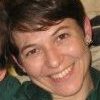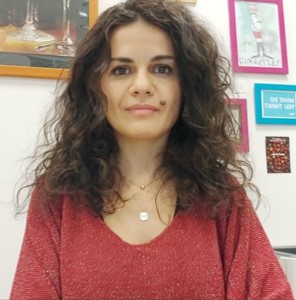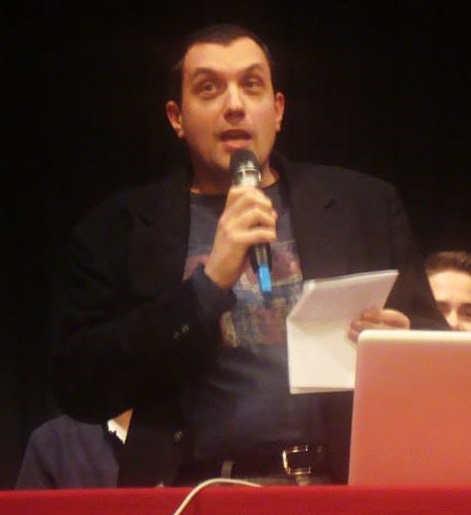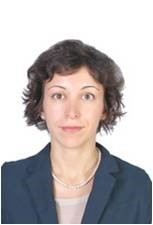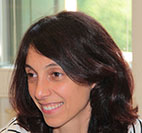Studying at the University of Verona
Here you can find information on the organisational aspects of the Programme, lecture timetables, learning activities and useful contact details for your time at the University, from enrolment to graduation.
Academic calendar
The academic calendar shows the deadlines and scheduled events that are relevant to students, teaching and technical-administrative staff of the University. Public holidays and University closures are also indicated. The academic year normally begins on 1 October each year and ends on 30 September of the following year.
Course calendar
The Academic Calendar sets out the degree programme lecture and exam timetables, as well as the relevant university closure dates..
| Period | From | To |
|---|---|---|
| I semestre | Oct 1, 2019 | Jan 31, 2020 |
| I° semestre - 3° anno | Oct 28, 2019 | Jan 31, 2020 |
| II semestre | Mar 2, 2020 | Jun 12, 2020 |
| Session | From | To |
|---|---|---|
| Sessione invernale d'esame | Feb 3, 2020 | Feb 28, 2020 |
| Sessione estiva d'esame | Jun 15, 2020 | Jul 31, 2020 |
| Sessione autunnale d'esame | Sep 1, 2020 | Sep 30, 2020 |
| Session | From | To |
|---|---|---|
| Sessione di laurea estiva | Jul 20, 2020 | Jul 20, 2020 |
| Sessione autunnale di laurea | Oct 20, 2020 | Oct 20, 2020 |
| Sessione autunnale di laurea - dicembre | Dec 11, 2020 | Dec 11, 2020 |
| Sessione invernale di laurea | Mar 19, 2021 | Mar 19, 2021 |
| Period | From | To |
|---|---|---|
| Festa di Ognissanti | Nov 1, 2019 | Nov 1, 2019 |
| Festa dell'Immacolata | Dec 8, 2019 | Dec 8, 2019 |
| Vacanze di Natale | Dec 23, 2019 | Jan 6, 2020 |
| Vacanze di Pasqua | Apr 10, 2020 | Apr 14, 2020 |
| Festa della Liberazione | Apr 25, 2020 | Apr 25, 2020 |
| Festa del lavoro | May 1, 2020 | May 1, 2020 |
| Festa del Santo Patrono | May 21, 2020 | May 21, 2020 |
| Festa della Repubblica | Jun 2, 2020 | Jun 2, 2020 |
| Vacanze estive | Aug 10, 2020 | Aug 23, 2020 |
Exam calendar
Exam dates and rounds are managed by the relevant Science and Engineering Teaching and Student Services Unit.
To view all the exam sessions available, please use the Exam dashboard on ESSE3.
If you forgot your login details or have problems logging in, please contact the relevant IT HelpDesk, or check the login details recovery web page.
Should you have any doubts or questions, please check the Enrollment FAQs
Academic staff
 michela.cecchin@univr.it
michela.cecchin@univr.it
 bruno.gobbi@univr.it
bruno.gobbi@univr.it
 flaminia.malvezzicampeggi@univr.it
flaminia.malvezzicampeggi@univr.it
 lorenzo.meneghini@univr.it
lorenzo.meneghini@univr.it
 chiara.nardon@univr.it
chiara.nardon@univr.it
 franco.zivcovich@univr.it
franco.zivcovich@univr.it
Study Plan
The Study Plan includes all modules, teaching and learning activities that each student will need to undertake during their time at the University.
Please select your Study Plan based on your enrollment year.
1° Year
| Modules | Credits | TAF | SSD |
|---|
2° Year activated in the A.Y. 2020/2021
| Modules | Credits | TAF | SSD |
|---|
3° Year activated in the A.Y. 2021/2022
| Modules | Credits | TAF | SSD |
|---|
| Modules | Credits | TAF | SSD |
|---|
| Modules | Credits | TAF | SSD |
|---|
| Modules | Credits | TAF | SSD |
|---|
Legend | Type of training activity (TTA)
TAF (Type of Educational Activity) All courses and activities are classified into different types of educational activities, indicated by a letter.
Wine politics and law (wine policy) (2021/2022)
Teaching code
4S02034
Academic staff
Coordinator
Credits
6
Language
Italian
Scientific Disciplinary Sector (SSD)
AGR/01 - AGRICULTURAL ECONOMICS AND RURAL APPRAISAL
Period
Secondo semestre dal Mar 7, 2022 al Jun 10, 2022.
Learning outcomes
More specifically, students who successfully complete this course will be able to: - determine the main characteristics of a function and sketch its graph; - differentiate a function and solve simple geometrical problems; - integrate a function and solve simple geometrical problems; - solve simple differential equations; - calculate matrix determinants and inverse matrix; - solve a linear system; - collect, analyze and interpret statistical data, both qualitative and quantitative, and organize results in order to draw conclusions and decide in uncertain situations; - communicate, to experts and non-experts, statistical information and evaluations, also with the help of graphical devices.
Program
Schedule of lectures:
- Introduction to the course, objectives, teaching organization, methods of examination
- Introduction to the concept of Agribusiness
Part 1) The market of agri-food products
Analysis of agriculture market: concepts and problems
Part 2) The market and the agri-food system
Part 3) The demand for agri-food products
The theory of Demand; Prices and budget constraint; Preferences and utilities. Elasticity of Demand: Price, Income and Cross-Elasticity of Demand. (Estimating price and income elasticity of demand). Analysis and examples for the agriculture and wine sector
Part 4) The supply of agricultural products
The theory of supply; Levels of production; The individual . Price elasticity of supply; Supply control instruments: economic and institutional. Effects of agricultural policies to supply management. The behavior of the application (analysis and examples referring to the agricultural and wine sector).
Part 5) The market and price formation
Price Determination in Agricultural Commodity Markets. Factors and mechanisms. Efficiency and equity. Prices policy in the marketing system of agricultural products. Understanding prices variations. Market structures (competition, monopoly and oligopoly): theories an examples. Barriers to trade.
Part 6). Markets organizations
Producers organisations, items and rules, keys aspect for promotion. The case of wine sector. Collective promotions, consortium, and opportunity for financing.
Teaching materials:
- Economia del mercato dei prodotti agroalimentari
Flavio Messori,Fabrizio Ferretti
Editore: Edagricole-New Business Media
Anno edizione: 2010
- Economics, Governance, and Politics in the Wine Market: European Union Developments
Davide Gaeta, Paola Corsinovi
Editore: Palgrave Macmillan
Anno edizione: 2014
- Slides and Scientific Journals provided by the Professor
Bibliography
Examination Methods
The aim is to evaluate the student's knowledge of agricultural and wine policy instruments implemented in European Union and Italy. The exam will be written to open questions regarding the topics addressed during the lectures. Final evaluation will be expressed in thirtieths. The exam method will be the same for attending and non-attending students. During the examination the use of any teaching material will not be allowed.
Type D and Type F activities
Modules not yet included
Career prospects
Module/Programme news
News for students
There you will find information, resources and services useful during your time at the University (Student’s exam record, your study plan on ESSE3, Distance Learning courses, university email account, office forms, administrative procedures, etc.). You can log into MyUnivr with your GIA login details: only in this way will you be able to receive notification of all the notices from your teachers and your secretariat via email and soon also via the Univr app.
Graduation
Attendance
As stated in the Teaching Regulations for the A.Y. 2022/2023, attendance is mandatory for practical and laboratory activities, unless otherwise determined by the Teaching Committee.
Documents
| Title | Info File |
|---|---|
|
|
pdf, it, 121 KB, 18/10/23 |

 +39 045 802 7949
+39 045 802 7949








